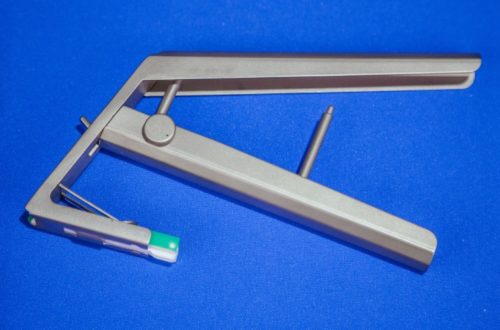4 Things You Should Know About Laser Eye Surgery & Lens Replacement

The world of vision correction has been transformed by the advent of laser eye surgery and lens replacement procedures. These advanced techniques offer individuals the opportunity to achieve clearer vision and reduce or eliminate the need for glasses or contact lenses.
If you’re considering these procedures, it’s important to have a comprehensive understanding of what they entail. In this article, we’ll explore four essential things you should know about laser eye surgery and lens replacement, helping you make informed decisions about your vision correction journey.
1. What is Laser Eye Surgery?
Laser eye surgery, also known as refractive surgery, encompasses various procedures designed to correct common vision problems such as nearsightedness (myopia), farsightedness (hyperopia), and astigmatism. The most well-known type of laser eye surgery is LASIK (Laser-Assisted in Situ Keratomileusis), which involves reshaping the cornea to improve the way light enters the eye and focuses on the retina.
How LASIK Works
- Corneal Flap Creation: A thin flap is created on the cornea’s surface, either using a microkeratome (a surgical blade) or a femtosecond laser.
- Corneal Reshaping: The underlying corneal tissue is reshaped using an excimer laser. This laser removes precise amounts of tissue to correct the refractive error.
- Flap Replacement: The corneal flap is carefully repositioned, where it adheres naturally without the need for stitches.
Benefits of LASIK
- Rapid Visual Recovery: Many patients experience improved vision within 24 hours after the procedure.
- Minimal Discomfort: LASIK typically involves minimal discomfort during and after the surgery.
- Reduced Dependence on Glasses: Most patients experience a significant reduction in their reliance on glasses or contact lenses.
2. Considering Lens Replacement Surgery
Lens replacement surgery, also known as refractive lens exchange (RLE) or clear lens extraction (CLE), is a procedure in which the eye’s natural lens is replaced with an artificial intraocular lens (IOL). This technique is often used to correct a wider range of vision problems, including presbyopia (age-related loss of close-up vision) and high degrees of refractive error.
Types of IOLs
- Monofocal IOLs: These lenses provide clear vision at a single focal point, typically for distance vision. Patients may still require reading glasses for close-up tasks.
- Multifocal IOLs: These lenses have multiple focal points, allowing patients to see clearly at varying distances without relying heavily on glasses.
- Toric IOLs: Designed to correct astigmatism, these IOLs have different powers in different meridians of the lens.
Benefits of Lens Replacement Surgery
- Comprehensive Vision Correction: Lens replacement surgery addresses a broader range of vision problems, including presbyopia and high refractive errors.
- Permanent Correction: IOLs provide lasting vision correction, reducing or eliminating the need for future interventions.
- Improved Quality of Life: Many patients experience enhanced visual freedom and a reduced reliance on corrective eyewear.
3. Determining Eligibility and Suitability
Both laser eye surgery and lens replacement surgery offer remarkable benefits, but not everyone is an ideal candidate for these procedures. Eligibility and suitability depend on various factors, including your eye health, age, and the specific nature of your vision problems. A thorough eye examination and consultation with an experienced ophthalmologist are essential to determine whether these procedures are suitable for you.
Eligibility for LASIK
- Stable Prescription: Your vision prescription should remain relatively stable for at least a year before considering LASIK.
- Healthy Eyes: Candidates should have healthy corneas and overall eye health.
- Age: LASIK is typically recommended for individuals aged 18 and older.
Suitability for Lens Replacement Surgery
- Presbyopia: Lens replacement surgery is especially suitable for individuals with presbyopia who are looking for a comprehensive solution to near and distance vision problems.
- High Refractive Error: Lens replacement surgery can effectively address high degrees of nearsightedness or farsightedness that may not be suitable for other vision correction methods.
4. Risks, Recovery, and Follow-Up Care
Both laser eye surgery and lens replacement surgery are safe and effective procedures, but like any medical intervention, they carry certain risks. It’s important to be aware of potential complications and to closely follow your surgeon’s post-operative instructions to ensure optimal healing and outcomes.
Possible Risks and Complications
- Dry Eyes: Temporary or persistent dryness can occur after laser eye surgery.
- Glare or Halos: Some patients may experience glare, halos, or other visual disturbances, especially at night.
- Infection: Although rare, there is a risk of infection following any surgical procedure.
Recovery and Follow-Up
- LASIK: After LASIK, most patients experience improved vision within a day or two. Follow your surgeon’s instructions regarding rest, eye drops, and avoiding strenuous activities.
- Lens Replacement: Recovery time varies, but most patients notice significant visual improvement within a week. Regular follow-up visits are important to monitor your healing progress.
Conclusion
Laser eye surgery lens replacement is a trans formative procedure that offer the potential for clearer vision and reduced dependence on glasses or contact lenses. A consultation with a skilled and experienced ophthalmologist will provide you with personalized insights and recommendations, guiding you toward the vision correction solution that aligns with your goals and enhances your quality of life.
Would you like to receive similar articles by email?





